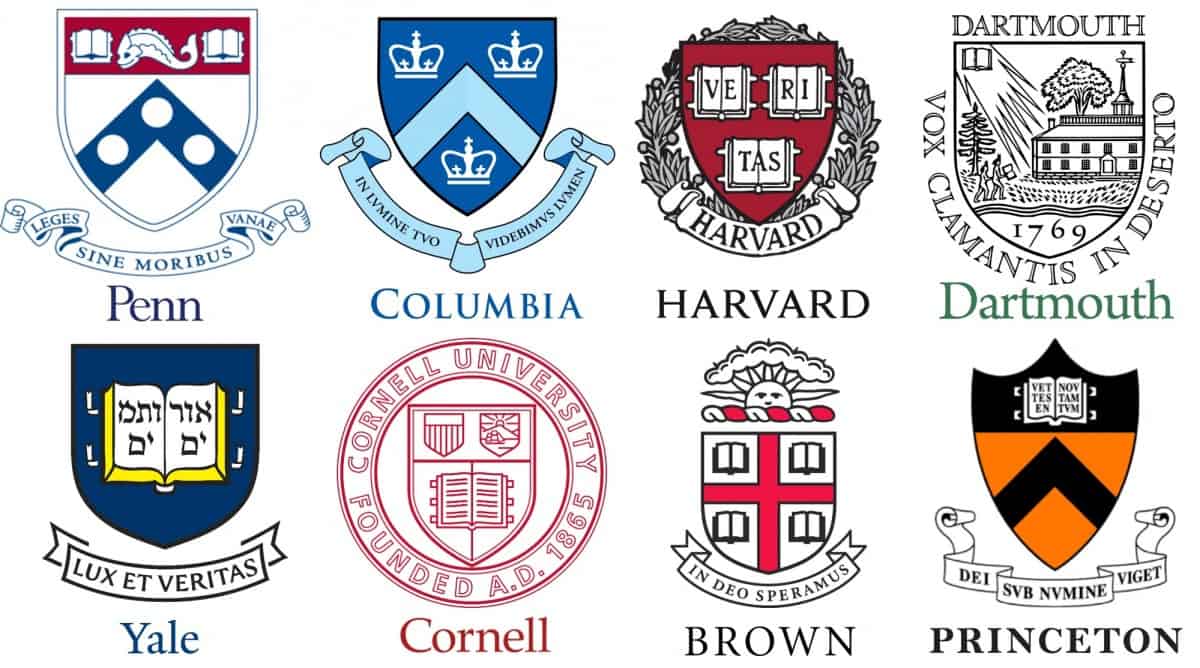Colleges That Don't Require SAT or ACT Scores in 2026: Complete Guide to 100+ Test-Optional Schools
The landscape of college admissions has fundamentally changed. Over 1,900 four-year colleges and universities in the United States now operate under test-optional or test-flexible policies, meaning students can apply and gain admission without submitting SAT or ACT scores. This comprehensive guide from SATHELP24x7.com explores the test-optional movement, lists over 100 institutions with no SAT requirement for 2026, and helps you understand whether test-optional admission is right for your college application strategy.
What you'll learn: Which prestigious universities don't require standardized test scores, the difference between test-optional and test-blind policies, strategic considerations for submitting or withholding scores, and how to strengthen your application when applying test-optional. Whether you're a strong test-taker deciding strategy or a student whose scores don't reflect their abilities, this guide provides the complete information you need.
Understanding Test-Optional Admissions Policies
What Does "Test-Optional" Really Mean?
Key Terms Defined
Test-Optional: Students can choose whether to submit SAT/ACT scores. Scores are considered if submitted but not required for admission.
Test-Flexible: Students can substitute SAT/ACT with alternative assessments (AP exams, IB scores, SAT Subject Tests where available).
Test-Blind: School does not consider SAT/ACT scores even if submitted. Scores are completely ignored in admissions decisions.
Test-Free: Similar to test-blind; institution has permanently eliminated standardized testing requirements.
The distinction matters because it affects your application strategy. At test-optional schools, strong scores can enhance your application, while weak scores won't hurt if you don't submit them. At test-blind schools, scores don't matter at all—admission officers won't see them even if you send them.
Why Are Colleges Going Test-Optional?
The test-optional movement accelerated dramatically during the COVID-19 pandemic when test administrations were disrupted nationwide. However, the trend began long before 2020, driven by several factors:
- Equity Concerns: Research shows standardized test scores correlate strongly with family income and parental education. Test-optional policies aim to increase access for underrepresented students.
- Holistic Admissions: Many institutions believe high school GPA, course rigor, essays, and extracurriculars better predict college success than a single test score.
- Increased Applicant Pool: Test-optional policies attract more applications, improving selectivity metrics and institutional rankings.
- Legal Pressure: Lawsuits and investigations have challenged the fairness of requiring standardized tests in admissions.
100+ Colleges That Don't Require SAT Scores for 2026
Highly Selective Universities (Top 50 National Universities)
Elite Private Universities
Top Public Universities
University of California System (Test-Blind)
All UC schools are test-blind—they do not consider SAT/ACT scores even if submitted:
Other Top Public Universities
Top Liberal Arts Colleges
Additional Test-Optional Universities
Northeast Region
Mid-Atlantic & South
Midwest
West Coast
Schools That Superscore the ACT
While not the primary focus of this guide, it's worth noting that many test-optional schools also practice "superscoring" for students who do choose to submit standardized test scores. Superscoring means the school considers your highest section scores across multiple test dates rather than focusing on a single sitting.
Notable Schools That Superscore ACT (Among Test-Optional Institutions)
- Duke University: Superscores both SAT and ACT
- Yale University: Superscores ACT (considers highest section scores)
- Northwestern University: Superscores ACT across all test dates
- Boston College: Superscores both SAT and ACT
- Georgia Tech: Superscores SAT and ACT
- University of Michigan: Superscores both tests
- Washington University in St. Louis: Superscores ACT
- Vanderbilt University: Superscores both SAT and ACT
Should You Apply Test-Optional?
Strategic Considerations
Just because a school is test-optional doesn't mean you shouldn't submit scores. The decision should be strategic, based on how your scores compare to the school's admitted student profile.
Submit Scores When:
- Your scores are at or above the school's 50th percentile (median) for admitted students
- Your scores are significantly higher than your GPA might suggest
- You're applying to highly selective schools where most admitted students submit strong scores
- You're applying for merit scholarships that consider test scores
- Your scores demonstrate academic strength in subjects related to your intended major
- The school uses scores for course placement even if not for admission
Consider Withholding Scores When:
- Your scores fall below the school's 25th percentile for admitted students
- Your GPA and coursework demonstrate stronger academic achievement than your test scores
- Test anxiety or learning differences affected your performance
- Limited test preparation opportunities resulted in lower scores
- Your application is otherwise very strong (GPA, rigor, essays, activities)
- The school has explicitly stated test-blind policies
Strengthening Your Test-Optional Application
If you apply test-optional, other parts of your application become more important. Admissions officers will scrutinize these elements more closely:
- Academic Rigor: The difficulty of your course schedule (AP, IB, Honors classes) carries more weight without test scores
- Grade Trends: Upward trajectory in grades demonstrates growth and resilience
- Letters of Recommendation: Strong teacher recommendations validating your academic abilities become crucial
- Essays: Your personal statement and supplemental essays need to be compelling and well-crafted
- Extracurricular Activities: Leadership, impact, and depth of involvement matter more
- Demonstrated Interest: Campus visits, interviews, and engagement show genuine interest
Common Questions About Test-Optional Admissions
Will applying test-optional hurt my chances?
Colleges with test-optional policies state that applying without scores does not disadvantage applicants. However, at highly selective institutions where most admitted students submit strong scores, not submitting may raise questions if your academic record isn't exceptionally strong. The impact varies by institution selectivity and the strength of the rest of your application.
Can I submit scores to some schools but not others?
Absolutely. You have complete control over where you send scores. You can submit to schools where your scores are strong and withhold them from schools where they're weak. This strategic approach maximizes your chances across your entire college list.
Do test-optional policies affect merit scholarships?
Sometimes yes. Many merit scholarships have historically required minimum test scores for eligibility. Some schools have adjusted scholarship criteria for test-optional applicants, while others still require scores for scholarship consideration even when they're optional for admission. Check each school's scholarship requirements specifically.
Will test-optional policies continue long-term?
This remains uncertain. Some institutions have made test-optional permanent policy, while others implemented temporary policies during pandemic disruption. A few highly selective schools have announced plans to reinstate testing requirements. The trend appears to favor continuing test-optional policies, but the landscape continues evolving based on research, equity considerations, and institutional priorities.
How Test-Optional Policies Are Changing College Admissions
Impact on Diversity and Access
Research on test-optional policies shows mixed results on diversity and access goals. Some studies indicate increased applications from underrepresented students and first-generation college applicants. However, critics argue that without test scores, admissions may rely more heavily on factors that also correlate with privilege, such as extracurricular opportunities and essay coaching.
Effect on Application Numbers
Test-optional policies have led to significant increases in application numbers at many institutions. When students can apply without test score barriers, more students take chances on reach schools. This increased application volume makes schools more selective statistically but also makes admission more competitive for all applicants.
Predictive Value Debate
The debate continues over whether standardized tests or high school GPA better predicts college success. Research shows both factors have predictive value, but test scores may add less predictive information than previously thought when considered alongside rigorous GPA. This ongoing research will likely influence future policy decisions.
Resources for Researching Test-Optional Policies
Authoritative Sources
- FairTest.org: Maintains the most comprehensive database of test-optional colleges, updated regularly
- College Board BigFuture: Each college profile indicates testing requirements and policies
- Common App: Testing requirements are listed on each school's application page
- Individual College Websites: Always the most accurate source for current policies—check admissions pages directly
- Common Data Sets: Section C8 indicates testing requirements; section C9 shows score ranges for admitted students
SATHELP24x7.com's Advice for Test-Optional Applicants
At SATHELP24x7.com, we've guided thousands of students through the test-optional admissions landscape. Here's our expert perspective:
We recommend that students:
- Start test prep early: Even with test-optional policies, having competitive scores opens more doors and scholarship opportunities
- Take tests in junior year: This gives you time to retake if needed and make informed decisions about submission
- Build a balanced college list: Include schools where your scores (or lack thereof) position you competitively
- Strengthen all application components: Don't rely solely on test-optional policies—build the strongest possible overall application
- Research each school individually: Test-optional policies vary significantly in implementation and philosophy
Need Help Navigating Test-Optional Admissions?
SATHELP24x7.com offers comprehensive college admissions counseling including test-optional application strategy, SAT/ACT preparation, and personalized guidance on whether to submit scores. Our expert advisors help you build the strongest possible application regardless of your testing situation.
Ready to develop your strategic application plan? Book a free consultation to discuss your testing strategy, college list development, and test-optional decision-making. We'll help you understand where your profile is competitive and how to maximize admission chances across all your target schools.
About This Guide: This comprehensive test-optional college guide was created by the college admissions experts at SATHELP24x7.com based on extensive research of institutional policies, admissions data, and years of experience counseling students through the college application process. We track policy changes across hundreds of institutions and provide up-to-date guidance to help students navigate evolving admissions landscapes.
SATHELP24x7.com College Admissions Expertise: Our team includes former admissions officers, test prep specialists, and college counselors who understand how test-optional policies work in practice, not just in theory. We've helped thousands of students make strategic decisions about test submission, resulting in admission to top-choice schools with and without test scores. Our holistic approach considers each student's unique profile and goals to develop customized application strategies.
Staying Current: College admissions policies change frequently. While we strive to maintain accurate information, always verify testing requirements directly with institutions before applying. Visit SATHELP24x7.com for updated admissions guidance, test preparation resources, and personalized counseling services that adapt to the evolving college admissions landscape.


